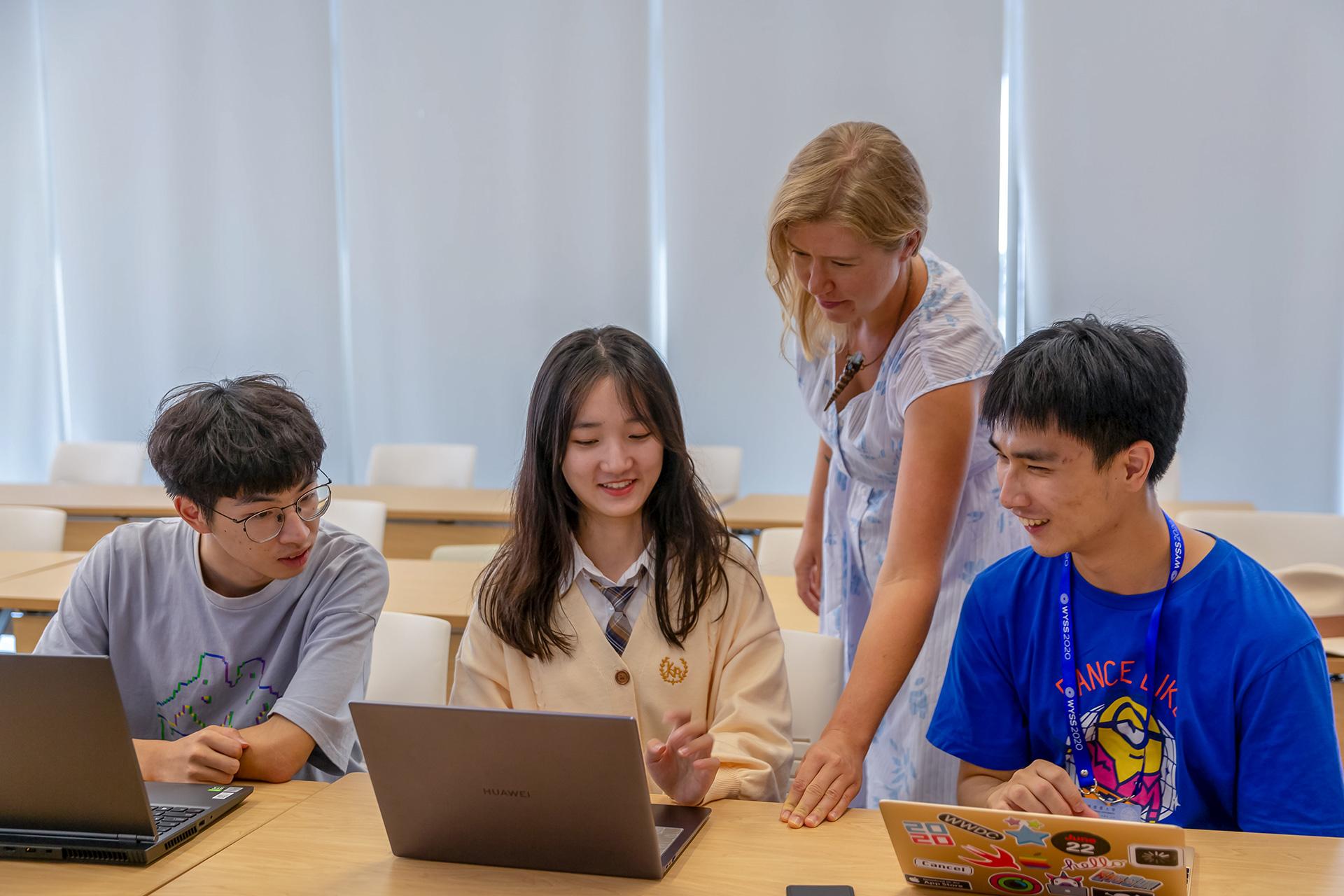
Muhammad Khalid
-
职位:生物科学讲师
-
学院:理工学院
-
办公室:CSMT 423
-
邮箱:
Education background
Ph.D. in Plant sciences
Shanghai Jiao Tong University, Shanghai, China
Postdoctoral fellowship
Shanghai Jiao Tong University, Shanghai, China
Courses teaching in WKU
General Biology (with Laboratory)
Genetics (with Laboratory)
Research and Technology
Independent Research in Biology (BIO4963)
Foundations of Environmental Science (ENV 1100)
Biography
Dr. Muhammad Khalid is a faculty member in the Department of Biology at Wenzhou-Kean University, Zhejiang, China. He earned his Ph.D. in plant sciences and completed a postdoctoral fellowship in Microbial Ecology, focusing on beneficial plant-microbe interactions. During his postdoctoral work, he collaborated with the University of Helsinki on several research projects.
His research investigates how microbial communities enhance plant stress tolerance, nutrient uptake, and secondary metabolite production under environmental stress. He combines molecular, physiological, and bioinformatics tools to study plant–microbe–soil interactions and has published widely in microbiology, plant science, and environmental science journals. He has also received several research awards.
Research interests
Dr. Khalid's research focus is on environmental microbial ecology, studying the microbiome's association with plants and their soil environment. Additionally, he is passionate about discovering new insights related to microbes-assisted phytoremediation.
Publications/scholarly and creative work
1. Khalid, Muhammad, Xinxin Liu, Bangxiao Zheng, Lantian Su, D. Johan Kotze, Heikki Setälä, Mehran Ali, Asad Rehman, and Nan Hui. "Distinct climatic regions drive antibiotic resistance genes dynamics across public parks and pristine soil ecosystems." Journal of Cleaner Production 409 (2023):137275. https://doi.org/10.1016/j.jclepro.2023.137275
2. Khalid, Muhammad, Saeed ur Rahman, Xinxin Liu, Asad Rehman, Ari Jumpponen, D. Johan Kotze, Heikki Setälä, and Nan Hui. "Exploring the impact of urbanization and vegetation type on fungal communities: Insights into divergent, mycorrhizal, and saprophytic associations driven by climate patterns." Catena 238 (2024): 107860. https://doi.org/10.1016/j.catena.2024.107860
3. Li, Kedi, Saeed ur Rahman, Asad Rehman, Haoxiang Li, Nan Hui, and Muhammad Khalid*. "Shaping rhizocompartments and phyllosphere microbiomes and antibiotic resistance genes: The influence of different fertilizer regimes and biochar application." Journal of Hazardous Materials 487 (2025):137148.https://doi.org/10.1016/j.jhazmat.2025.137148
4. Li, Kedi, Asad Rehman, Saeed ur Rahman, Farwa Basit, Xinxin Liu, Aloysius Wong, Khulood Fahad Alabbosh, Haoxiang Li, Nan Hui, and Muhammad Khalid*. "Interplay between green-synthesized nanoparticles and plant performance is mediated by the microbial community in the rhizocompartments." Industrial Crops and Products 215 (2024):118623.https://doi.org/10.1016/j.indcrop.2024.118623
5. Saeed, Xinxin Liu, Muhammad Khalid, Asad Rehman, Junfeng Cao, Chang Zhao, Haoxin Tan et al. "Cross-climatic comparison of microbial stress-responsive genes in urban parks: A comparative analysis." Urban Forestry & Urban Greening 03 (2025): 128595. https://doi.org/10.1016/j.ufug.2024.128595
6. Li, Haoxiang, Asad Rehman, Saeed ur Rahman, Kedi Li, Tianrui Yang, Percy Akuetteh, and Muhammad Khalid*. "Biosynthesized zinc oxide nanoparticles modulate the phytoremediation potential of Pennisetum giganteum and its rhizocompartments associated microbial community structure." Journal of Cleaner Production 434 (2024): 140346.
7. Hassani, Danial, Xueqing Fu, Qian Shen, Muhammad Khalid, Jocelyn KC Rose, and Kexuan Tang. "Parallel transcriptional regulation of artemisinin and flavonoid biosynthesis." Trends in plant science 25, no. 5 (2020): 466-476. https://doi.org/10.1016/j.tplants.2020.01.001
8. Khalid, Muhammad, Saeed-ur Rahman, and Danfeng Huang. "Molecular mechanism underlying Piriformospora indica-mediated plant improvement/protection for sustainable agriculture." Acta biochimica et biophysica Sinica 51, no. 3 (2019): 229-242. https://doi.org/10.1093/abbs/gmz004
9. Khalid, Muhammad, Danial Hassani, Jianli Liao, Xin Xiong, Muhammad Bilal, and Danfeng Huang. "An endosymbiont Piriformospora indica reduces adverse effects of salinity by regulating cation transporter genes, phytohormones, and antioxidants in Brassica campestris ssp. Chinensis." Environmental and experimental botany 153 (2018): 89-99. https://doi.org/10.1016/j.envexpbot.2018.05.007
10. Khalid, Muhammad, Muhammad Bilal, and Dan-feng HUANG. "Role of flavonoids in plant interactions with the environment and against human pathogens—A review." Journal of integrative agriculture 18, no. 1 (2019): 211-230. https://doi.org/10.1016/S2095-3119(19)62555-4




